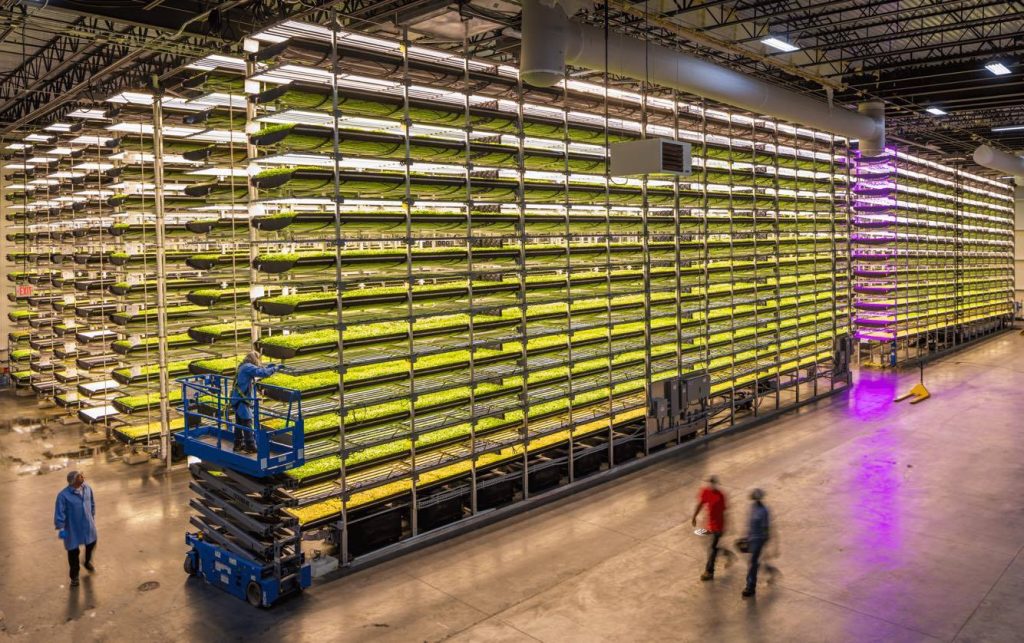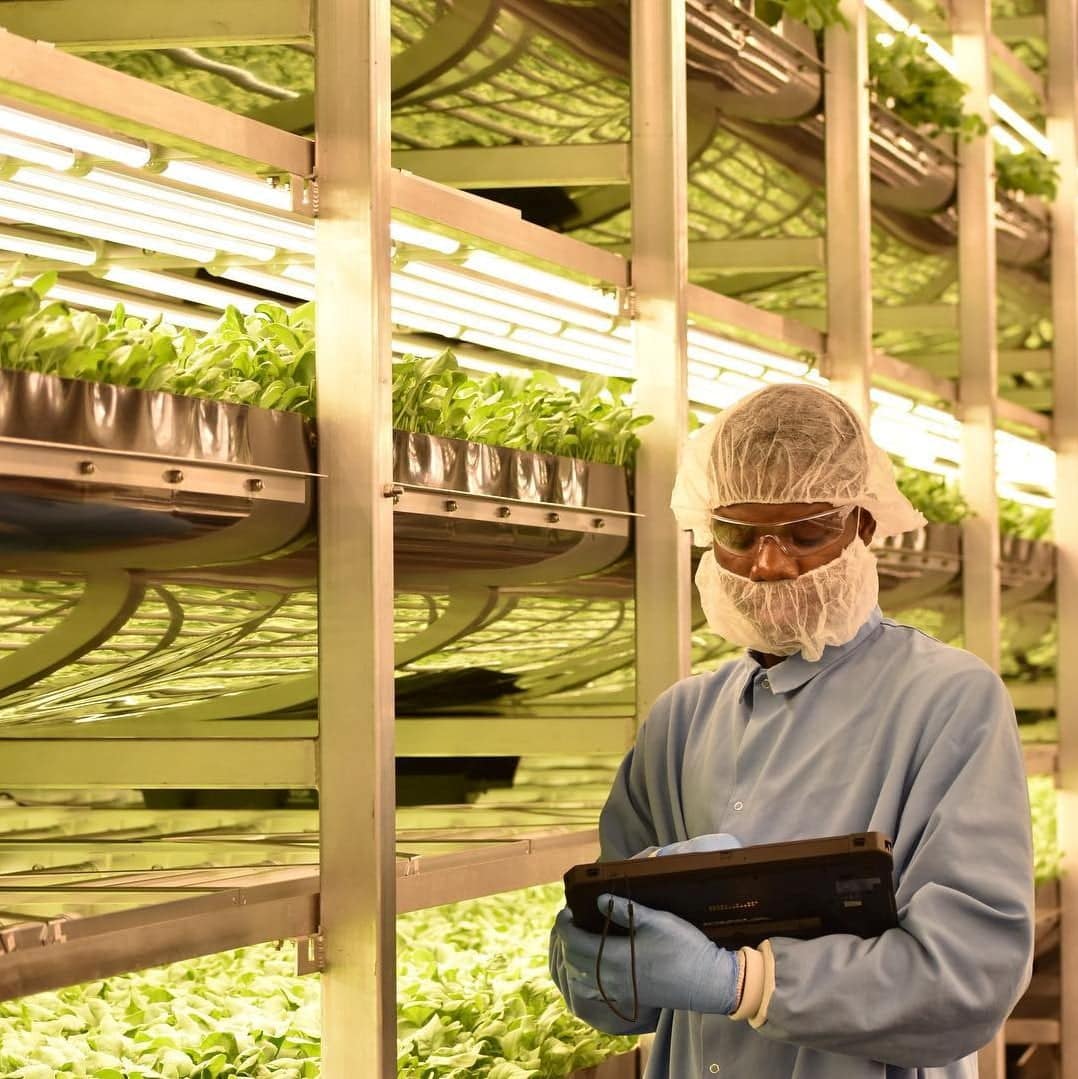Aerofarms, asustainable indoor agriculture company, is on a mission to transform eating habits and provide communities with safe and nutritious food thanks to vertical farms.
The innovative company Aerofarms based in Newark, New Jersey is transforming agriculture with the largest indoor vertical farm in the world and wants to use this tool to combat food inequalities.
Aerofarms, nature in a room
“Instead of the sun we use LED lights, instead of the ground we use a 100% reusable textile carpet made from recyclable materials.
We are able to grow plants using up to 95% less water and grow a plant in 14 days on average.” He says it David Rosenberg, co-founder and CEO of Aerofarms.

Fight against food inequalities
In collaboration with the city of Jersey City, Aerofarms and the World Economic Forum are seeking to provide residents with locally grown vegetables for free.
This revolutionary partnership, the first municipal vertical agricultural program, will lead to the construction of 10 vertical farms in senior citizens centers, schools, social housing and municipal buildings in Jersey City. A blow (finally) to food inequalities.
Each year, these vertical municipal farms are expected to produce around 19.000 pounds of vegetables.
Entities that feed citizens with vertical farms
“We have always seen a food security problem in our community and Covid-19 has only exacerbated it. We've worked hard to connect sustainability across our city and health. To build healthy communities from within,” he says Stacey Flanagan, director of health and human services for Jersey City.

In addition to vertical farms, the initiative will include seminars on healthy eating and quarterly health screenings. Monitoring that will analyze blood pressure, cholesterol, diabetes and obesity.
Among the public services, perhaps in the framework of a universal basic income, there will also be food alongside the aqueduct, school, healthcare and public housing and others.
Expanding access to vertical farms will be a civic mission in the near future. Increasing production and reducing times will make it possible to make larger quantities of healthier food available.


